The future health professionals of Universidad Europea have approached patients from the perspective of care at the 1st Conversation with Patients Day
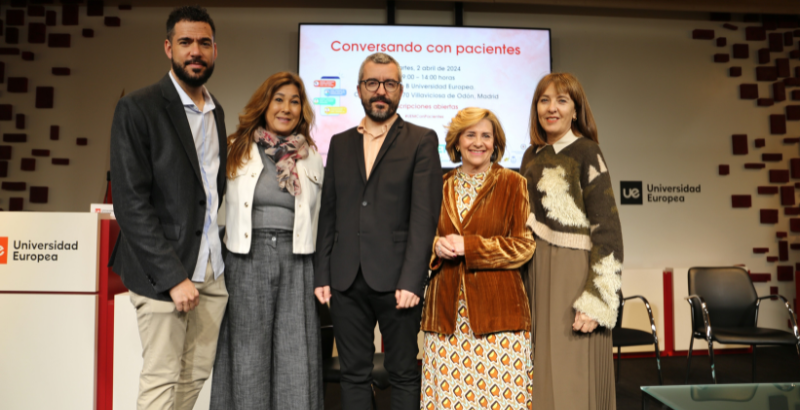
During the session, the Secretary of State, Javier Padilla, explained that "we are at a time when being a patient has changed completely. Many times patients are going to know much more about what healthcare professionals are talking about and, at this time, healthcare professionals and institutions have to give a role to this participation. The Ministry is drafting a Royal Decree on Health Technology Assessment that will incorporate patients into the decision-making process".
For her part, the rector of Universidad Europea, Elena Gazapo, who also holds a doctorate in Medicine, highlighted the importance of the "experiential academic model of Universidad Europea, based on the acquisition of knowledge, but also of values in the development of competencies". As she explained, it is "a very practical model, close to the professional reality and with a social ethical dimension that makes us consider the relationship with patients beyond the healthcare environment".
The Institution held its first round table under the title "The impact of patients' associations on health policy". The president of the Spanish Patients' Forum (FEP), Andoni Lorenzo; the vice-president of the Spanish Association of Metastatic Breast Cancer (AECMM), Gema Rodríguez; the president of the Institute for Research and Social Development of Rare Diseases (INDEFP), Jesús Ignacio Meco; and Begoña Barragán, president of the Spanish Cancer Patients Group, stressed the importance of patients having a voice and representation in health policy and the role of associations that collaborate with health professionals and policy makers to raise awareness of the importance of this care.
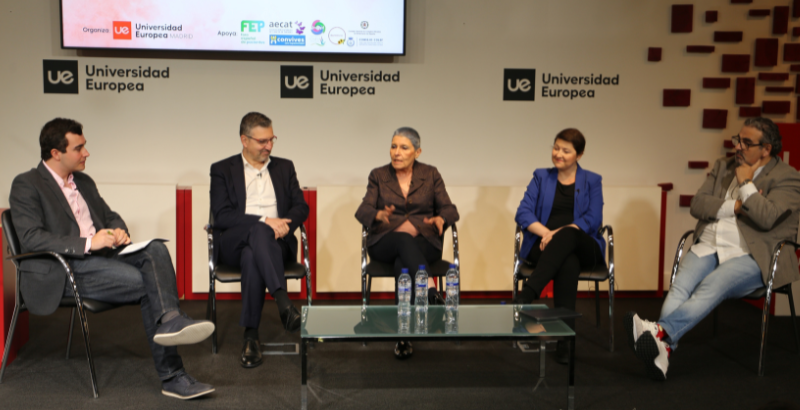
Arantxa Sáez, president of the Spanish Thyroid Cancer Association; Iris Torrente, an active online patient who makes chronic diseases visible to young people; Ana José Bravo, president of the Tarlov Cysts Association; and Héctor Nafría, a nurse and patient of the MCArdle disease, took part in a discussion in which they highlighted the importance of patients in digital health. The speakers highlighted how technological advances have allowed patients to play a more active role in medical care and health management.
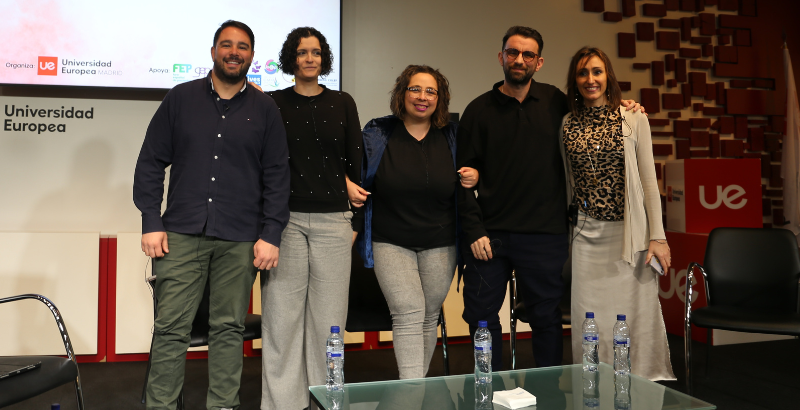
Noah Higón, a patient with seven rare diseases; Mónica Rodríguez, who suffers from DT1 and has molecular degeneration and blindness; and Claudia Tecglen, president of the Convives con Espasticidad Association, took part in a round table discussion on the role of patients with disabilities in the healthcare context. They shared their personal experiences and emphasised the need to make visible and understand the needs of patients with disabilities, especially those suffering from rare diseases.
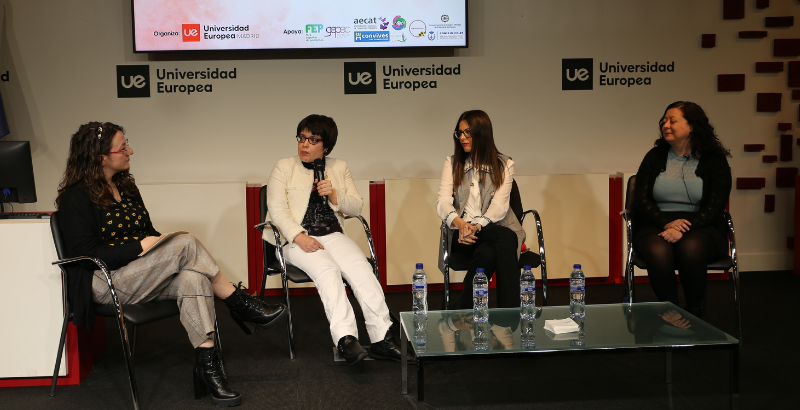
The last colloquium, under the title "Dialogue between professional associations and patients' associations", was attended by Diego Ayuso, Secretary General of the General Council of Nursing, Gustavo Paseiro, General Councillor of the Spanish Physiotherapists' Associations, and Vicente Gambau i Pinasa, General Councillor of Physical and Sports Education. At this round table they were able to share different views on the patient's perspective, although all under a common idea, the importance of accompaniment from the perspective of care.
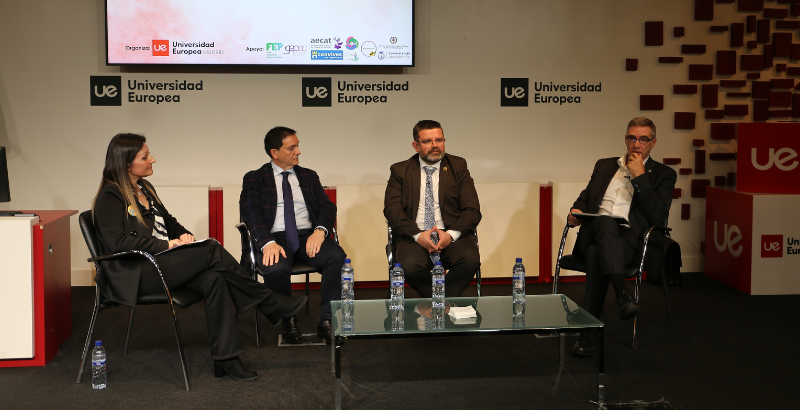
Joan Carles March, doctor of Medicine and lecturer at the Andalusian School of Public Health, concluded the day's speeches by stressing the importance of decision-making between patients and professionals.
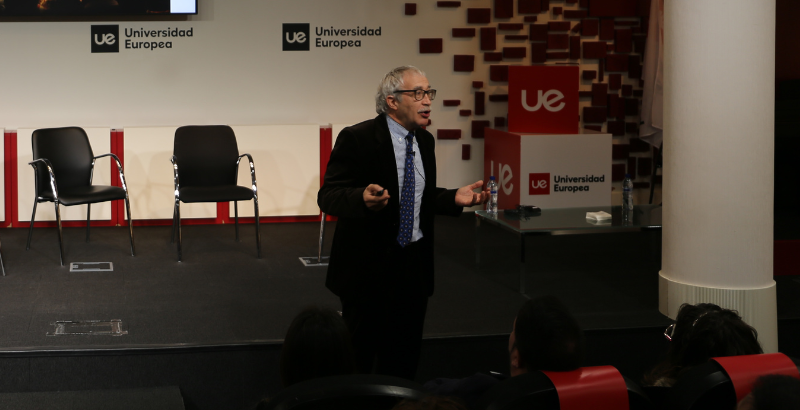
In her closing speech, the Vice-Dean Ana Giménez, recalled that this conference is an example of the training activities related to the ethical and social domain of the academic model of Universidad Europea, which also leads the School with Patients project, developed by the Foundation of Universidad Europea and whose objective is to train patients in self-care of their health.
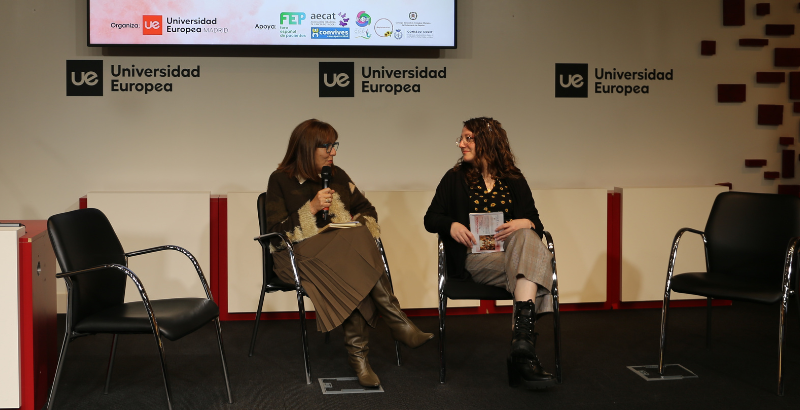
Universidad Europea, through this type of activities, helps to reduce the gap between the graduating student and the professional student, bringing them closer to the working environment and transferring them the experience and wisdom of professionals and people who provide valuable lessons that they can apply in their work performance.